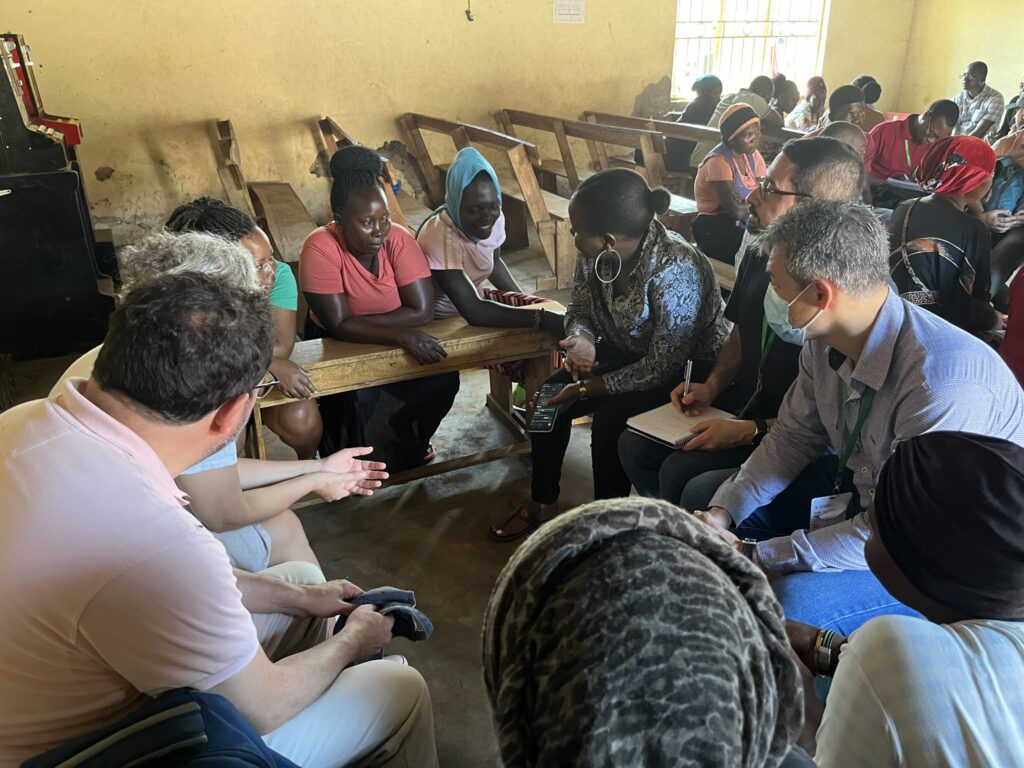When we think about place-based education (PBE), our minds often go first to children. That is, our Pre-K to 12th grade students, classrooms, and communities in which we live.
But what about adults? Can PBE apply to grown-ups as well? Specifically, to 18 university faculty who specialize in – [inhale a deep breath] – environmental economics and sustainable development?
In September 2022, Teton Science Schools’ Leslie Cook and Dr. Kevin
Krasnow led a group of international professors to try just that. Accompanied by Dr. Oskar Hagvall Svensson with the Environment for Development initiative (EfD), the group traveled to Kamala, Uganda, for a 3-day PBE workshop.
Participants experienced the principles of PBE first hand, and then had to figure out how they planned to implement them into their own economics and development classrooms.
Place-Based Education focuses on 6 core principles:
- Local learning serves as a foundation for understanding global issues
- PBE is learner-centered
- Lessons are inquiry-based
- Students use design thinking to make an impact on the community
- PBE uses the community as a classroom
- Place-based learning is holistic and interdisciplinary
All six of these pillars were touched on during the course of the workshop. One day, the group traveled to a local fish and vegetable market on the shores of Lake Victoria. What was there? Who was working? How did the people at the market interact with one another?
Participants learned it’s one thing to read about an experience in an article or a book. It’s something altogether different to hear, touch, taste and smell a fresh market – and see all its interconnecting parts – in real life.
Take avocados, for example. A small group of the professors were intrigued by the large avocados available in the market. They were used to seeing smaller Haas-style avocados in their home grocery markets and were eager to try the bigger varieties.
With avocado trees growing in almost all the participants’ home countries, it also sparked some questions:
- Where are avocado trees native to?
- How did avocado trees get to my home country?
- Who first brought them?
- When did they arrive?
In addition to the fish market, participants studied local media and newspapers. They also attended a panel discussion about the environment and the impacts of development in Uganda.
Through these various field experiences, participants had to plan out how they were going to incorporate place-based education principles into their upcoming lesson plans.
One faculty member developed an undergraduate microeconomics unit where students would analyze price discrimination using local and regional news sources. Another participant planned to lead an inquiry with local policy makers and the people actually impacted by economic policy.
Participants realized firsthand that the possibilities in incorporating PBE principles are endless.
But first, focus on where you are
Not surprising, the group itself was incredibly diverse. Participants traveled from Kenya, Uganda, Tanzania, Ghana, Nigeria, India, Vietnam, Costa Rica, Chile, and Colombia. With such an international group, the idea of focusing on the local community in Kampala before moving onto a global context might have been a shock to their system. But it was also the most natural starting point.
This is the crux of PBE – to first explore where you are, taking into consideration the culture, ecology, and economy of your local space. Once you have a solid understanding of – and connection to – your own place, that’s when students can begin to draw comparisons to other places, people, and experiences.
The place-based education workshop in Kampala was the second of three modules for participants. They are all enrolled in a capacity building and pedagogy program through the Environment for Development initiative (EfD).
For more information on future Place-Based Education workshops, or to explore hosting a workshop of your own, please contact Leslie Cook at leslie.cook@tetonscience.org.


